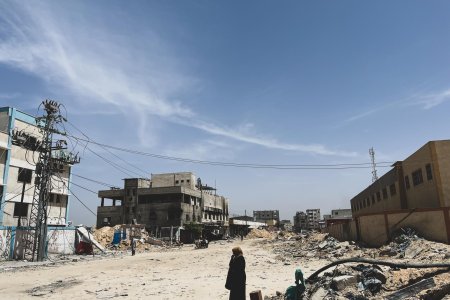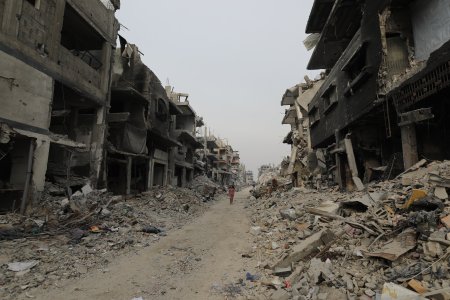 Nour Alsaqqa/MSF
Conference
Nour Alsaqqa/MSF
Conference
06/12/2025 - 06:30 PM 08:30 PM
Neve Gordon
Nicola Perugini
We are pleased to invite you to a conference entitled " Human shields. When humanitarian law turns against war victims" on Thursday June 12, 2025 at 6:30 pm, at MSF headquarters, 34 avenue Jean Jaurès, 75019 Paris. We will be welcoming Neve Gordon and Nicola Perugini.
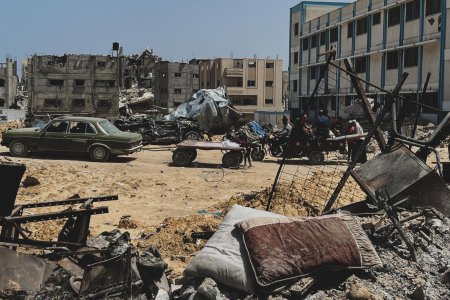 Ben Milpas
In the media
Ben Milpas
In the media
11/06/2024
Rony Brauman
On 11 June 2024, Rony Brauman was invited alongside with journalist Shirli Sitbon and nonresident Senior Fellow at Atlantic Council Ahmed Fouad Alkhatib on France 24 English to talk about the situation in Gaza. During the interview, the former president of MSF evokes the ongoing starvation and the need for a ceasefire.
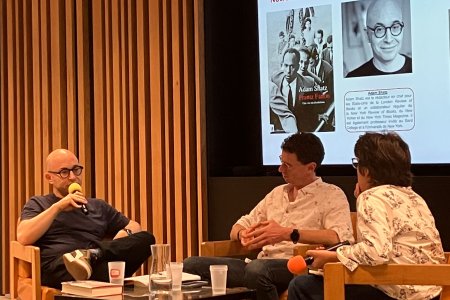 Conference
Conference
06/27/2024 - 08:00 PM 10:00 PM
Adam Shatz
On 27 June 2024, the Crash team welcomed the journalist and essayist Adam Shatz for a lecture on Frantz Fanon. The conference was prepared and moderated by Caroline Izambert and Michaël Neuman.
 Conference
Conference
04/04/2024 - 08:30 PM 10:30 PM
Emilie Medeiros
Eloïs Voisin
Raphaël Torlach
On Thursday, April 4, 2024 at 6:30pm, the CRASH team welcomed Emilie Medeiros, Eloïs Voisin and Raphaël Torlach for a conference/debate on the situation of the Rohingya refugees in Bangladesh. This conference was prepared and moderated by Michaël Neuman.
 Conference
Conference
02/29/2024 - 07:00 PM 09:00 PM
Nicolas Mariot
Théo Boulakia
On Thursday 29 February at 6.00pm, we welcomed sociologists Théo Boulakia and Nicolas Mariot, the authors of "L’Attestation. Une expérience d’obéissance de masse, printemps 2020". This conference was prepared and moderated by Elba Rahmouni and Marc Le Pape.
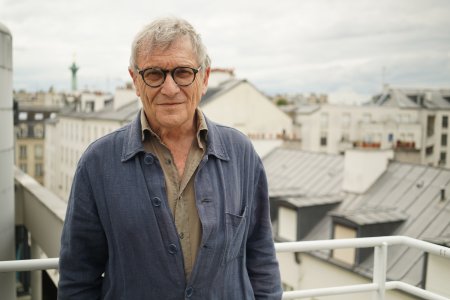 Interview
Interview
10/16/2023
Rony Brauman
This interview by Didier Billion and Marc Verzeroli was originally published in the Revue internationale et stratégique. To examine the concept of de-westernization, Rony Brauman describes the current state of international relations, marked by fluid alliances and new power relationships. He states and details his reservations about whether universal values truly exist and how the international criminal justice system functions.
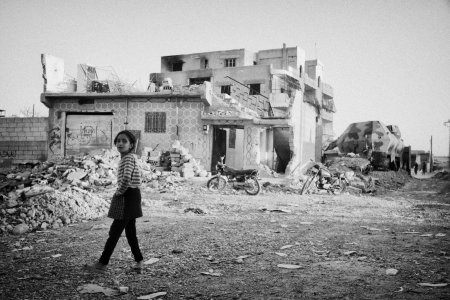 Eddy Van Wessel
In the media
Eddy Van Wessel
In the media
03/26/2020
Rony Brauman
On March 8, 2020, the FIFDH Geneva organised a debate between Rony Brauman, Annyssa Bellal - Strategic Adviser on International Humanitarian Law - and Amani Ballour, a paediatrician who spent five years in an underground hospital in Syria and the protagonist of the film The Cave, to answer the question "Does international humanitarian law legitimise wars ?"
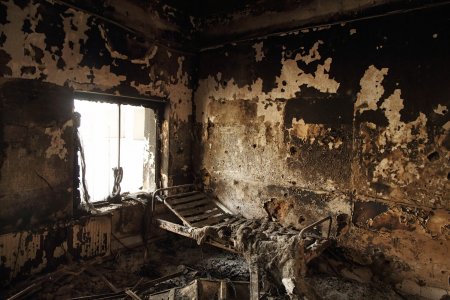 Andrew Quilty
Op-ed
Andrew Quilty
Op-ed
Le Monde
12/24/2019
Jean-Hervé Bradol
Rony Brauman
Concerned about the fate of these two whistleblowers, particularly the founder of Wikileaks, Jean-Hervé Bradol and Rony Brauman, former presidents of Doctors Without Borders, demand that he receive treatment.
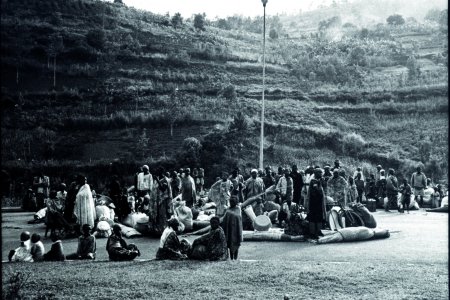 Xavier Lassalle/MSF
Opinion
Xavier Lassalle/MSF
Opinion
04/05/2018
Jean-Hervé Bradol
The publication of the journalist Judi Rever’s book, In Praise of Blood, on the crimes committed by the Rwandan Patriotic Front’s armed rebellion has rekindled discussion over the existence of a “double genocide”, one committed against the Tutsis under the orders of Rwanda’s interim government which took power in April 1994 following the assassination of President Habyarimana, and the other against the Hutus by the Rwandan Patriotic Front (RPF) which seized power in July 1994. There is little or no controversy about the reality of the genocide of the Tutsis in the world of Rwandan studies, but the claim that the Hutus were in turn victims of genocide sparks reactions as violent as they are confused. The cause of this confusion can be found in the different definitions of a term used in at least three fields: history, law and politics.
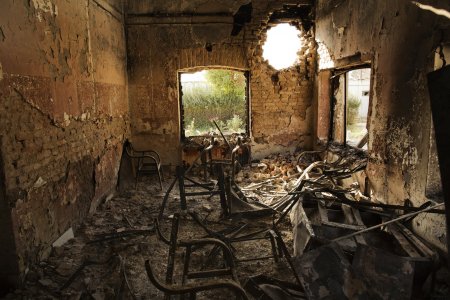 Victor J. Blue
Video
Victor J. Blue
Video
02/19/2018
Rony Brauman
Olivier Falhun
Rony Brauman has just published “Guerres humanitaires ? Mensonges et intox”. This book, a collection of interviews co-authored with Régis Meyran, explores a number of recent armed interventions that have all shared the goal of saving lives. Reviewing conflicts in Somalia, Libya, Kosovo, Afghanistan and Iraq, Brauman discusses the reasons advanced for justifying these wars and the accompanying lies.
 Opinion
Opinion
10/23/2017
Marc Le Pape
How can anyone write about Rwanda without being called a denialist? Marc Le Pape tries to craft an answer in this article, published on the website The Conversation on 19 October 2017.
 Nour Alsaqqa/MSF
Conference
Nour Alsaqqa/MSF
Conference

